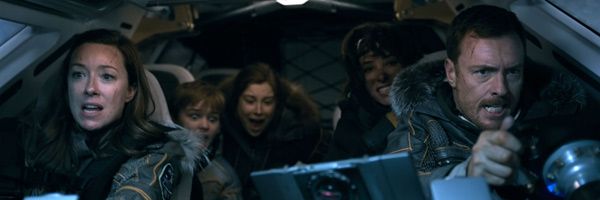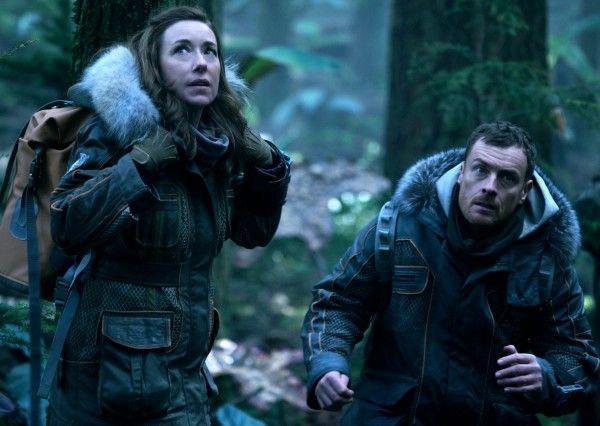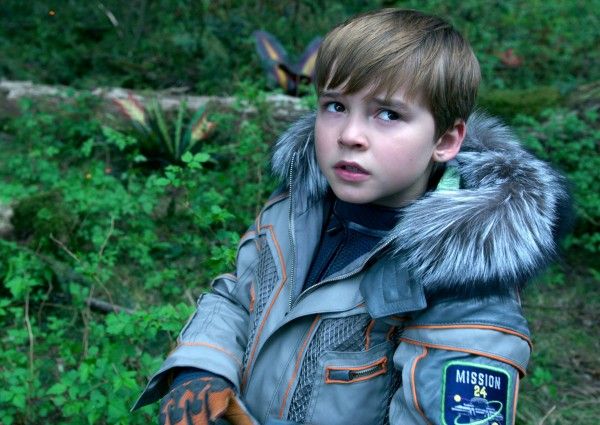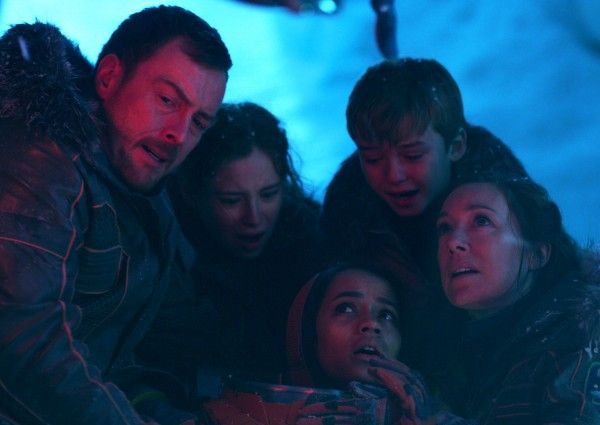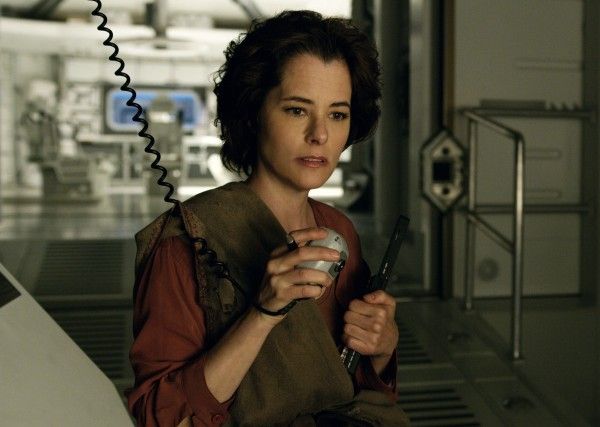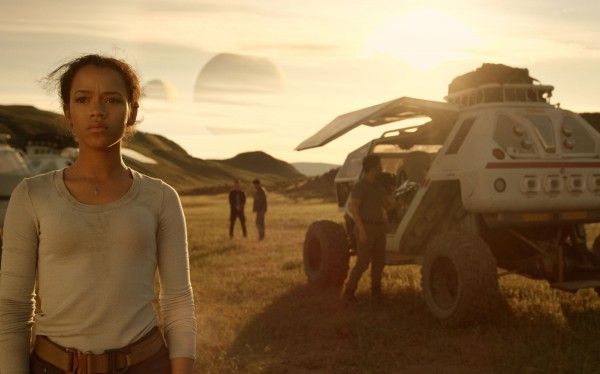The opening credits of the original series Lost in Space are about what you would expect. A still shot of the stars serves as the foundation as the zippy, lounge-tinged theme plays and the performers are introduced through crude graphics and animation, muted clips, and text. It’s not at all different from the opening credits of the original Star Trek series, which debuted in 1966, about a year after Lost in Space hit the airwaves. In both cases, the proverbial table is set exclusively for good times in the endless abyss of the universe.
This is not the case, however, with the remake of Irwin Allen’s series that premieres on Netflix this coming Friday. The opening credits for the new show oddly highlight a distinctly American heritage of technical innovation and space exploration, with images of astronauts and young, curious boys working with toy rockets projected against the sleek contours of the Jupiter 2, the spacecraft that houses the pioneering Robinson family. And just as these images reflect, the series is now hooked directly to a sense of the history and work that goes into exploration, and the near-constant, oft-fatal perils of such a life. Where the original was odd and charmingly cheesy, the new version is all about clarity, pragmatism, and sober morals.
This both benefits the series dramatically and drains it of an essential element of the bizarre. The Robinson family, led by brilliant scientist Maureen (Molly Parker of House of Cards) and former soldier John (Toby Stephens of Black Sails), spend the first quarter or so of the season focused mainly on getting the Jupiter 2 running after crash landing on an alien planet. Meant to become the first colonists of a new world, they are stranded seemingly far away from their brood, and the series makes much of the action hinge on the Robinsons’ fight against the unknown whims of the newfound terrain. For all the alien eels and robots that look like they deadlift daily, the latest Lost in Space is primarily a surviving-the-wilds tale. For all its realism, however, this kind of storytelling quickly becomes repetitive, and in this particular case, it becomes a reason to evade exploring messier subject matter.
The series makes a point of highlighting the intelligence and capability of the Robinson children as well, beginning with Judy (Taylor Russell), the eldest, and Penny (Mina Sundwell), the rebellious middle child. They are presented as essentially equal in their efforts, as their parents in fixing up the ship, from Judy’s near-fatal dive into a submerged Jupiter 2 to Penny’s inaugural ride on the module. It’s a respectful vision of youth, but in harping on how impressive and respectable the kids are, the show robs them of the naiveté, unruly desires, and plain old idiocy of being young. Even Will (Maxwell Jenkins), the youngest of the clan, is presented as a shining moral example of perfect courage when he saves the robot that will become his faithful bodyguard for the rest of the season. They’re not surprised or really in wonder about much of anything, and the writers strive to normalize dramatic situations that should register as completely unexpected and beguiling.
Of course, like so many popular science fiction narratives, the focus here is in the unifying of a fractured family on the verge of separation and divorce. The actors are all commendable in giving their characters a level of lively, unpredictable presence that doesn’t come through in much of the writing, but special mention must be made of Parker Posey, who plays the nefarious Dr. Smith. Posey’s sterling reputation for elevating even the most dull or dumb material remains polished here, as she gives Smith’s ruthless sense of self-preservation in the terrain, both with and without the Robinsons, a touch of human reason and methodical strategy. If the more-than-obvious message of the Robinsons’ saga is that working together to survive is better than self-preservation, Smith occasionally offers a compelling rebuttal, as Posey details an inner life for her character out of gestures and expressions alone.
Lost in Space might have done well to work in 30-minute clips rather than 50-odd stretches, but even in its current form, the show’s dedication to efficient storytelling makes for an ensnaring pace, and the action sequences are thrilling more times than not. In fact, what Netflix and showrunner Zack Estrin have delivered here is largely engaging and intermittently really fires on all cylinders. And yet for all its passable elements, it’s hard to tell to whom, exactly, Lost in Space is meant to speak. As a vision of adolescence facing a life-and-death crisis, it’s far too tidied, controlled, and sober to come off as relatable. There’s no sense of how seductive and overwhelming the unknown can be for an adult, never mind a kid or teenager. And as a vision of adulthood in both personal and elemental disaster, it’s simplistic, safe, and dominated by work. The development and progress of the overarching plot – for the Robinsons to reunite with the rest of their colony – takes precedence over much of this and therefore, for better and worse, you never quite feel lost in this particular space.
Rating: ★★
Lost in Space premieres in full on Netflix on April 13th.

